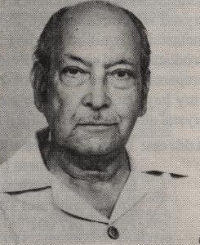 W
WRam Behari Arora (1917–1997) was an Indian pharmacologist, medical academic, and the founding head of the department of pharmacology at Sawai ManSingh Medical College, the first medical college in the Indian state of Rajasthan. He was one of the founder fellows of the National Academy of Medical Sciences.
 W
WSanjeev Bagai is an Indian paediatrician and medical administrator, known for his proficiency in paediatric nephrology and neonatology. He is the Chairman of Nephron Clinic and was the former Vice Chairman of the Manipal Hospital Dwarka, New Delhi, the third largest healthcare network in India.
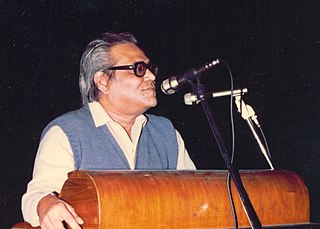 W
WAmar Nath Bhaduri (1935–2003) was an Indian molecular enzymologist and chemical biologist, known for his studies on UDP-glucose 4-epimerase, a homodimeric epimerase found in cells and his work on Leishmania donovani, the protozoal pathogen for Kala-azar. He was the director of the Indian Institute of Chemical Biology (IICB), Kolkata and an elected fellow of the Indian National Science Academy and the Indian Academy of Sciences. The Council of Scientific and Industrial Research, the apex agency of the Government of India for scientific research, awarded him the Shanti Swarup Bhatnagar Prize for Science and Technology, one of the highest Indian science awards, in 1978, for his contributions to biological sciences.
 W
WBhagvatsinhji was the ruling Maharaja of the princely state of Gondal from 1869 till his death in 1944, upon which he was honoured with 11-gun salute. He was the only Maharaja to take a medical degree and other degrees.
 W
WIdupuganti Bhooshana Rao was a leading figure in forensic medicine in India. He was the Founder-President of the Indian Academy of Forensic Medicine established in 1972. He was born in Dornakal, Andhra Pradesh, India.
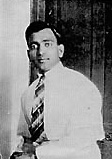 W
WGunamudian David Boaz was the first Indian psychologist. He received his PhD from The University of Oxford in 1935, and graduated from Scott Christian College. The department of Psychology was instituted at the University of Madras in 1943 by him under the influence of Nobel laureate, Sir C. V. Raman and G.N. Ramachandran. The "Journal of The Madras University" states that Boaz joined the department on 27 September 1943 and on 27 October 1943, he became the Senior Lecturer in Psychology. In 1948, a full-fledged Psychology department was organized under the headship of Boaz. The department concentrated exclusively on children and their education first. He was credited for making India a major contributor in the field on Psychology. Later on in 1976, the department turned its attention to Criminology, Applied Psychology, Organizational Psychology and Counseling, etc. The Indian Government has instituted an award in remembrance of his Work, and more over the Tamil Nadu Government Psychiatric rehabilitation is named after him, The Dr. G.D. Boaz Memorial Hospital
 W
WRanjit Roy Chaudhury, was an Indian clinical pharmacologist, medical academic and health planner, who headed the National Committee for formulating the policy and guidelines on drugs and clinical trials in India. He was the chairman of the joint programme of World Health Organization and Government of India on Rational Use of Drugs in India. He was the founder president of the Delhi Medical Council and the president of the Delhi Society for Promotion of Rational Use of Drugs.
 W
WKirpal Singh Chugh was an Indian nephrologist from Patti, a neighbouring town to Amritsar in the Indian state of Punjab. He was reportedly the first qualified Indian nephrologist and is considered by many to have been the father of Nephrology in India for his pioneering efforts in starting the first medical department in the discipline in 1956 and establishing the first medical course in nephrology (DM) at the Post Graduate Institute of Medical Education and Research, Chandigarh.
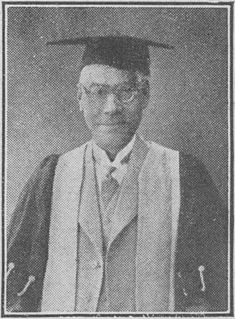 W
WSir Kedarnath Das CIE, MD (1867–1936) was a prominent obstetrician and medical educator of India from Calcutta.
 W
WSuresh Samuel David is an Indian physician specializing in emergency medicine. He was the medical director at Pushpagiri Medical College, Tiruvalla. After completing his tenure at Pushpagiri Medical College, he was the director of Princess Durru Shehvar Hospital, Hyderabad. The first Indian physician to be formally trained in emergency medicine, David pioneered the practice of emergency medicine in India and is credited with founding the department of emergency medicine at Christian Medical College, Vellore. He is the first person to hold the position of a professor in the discipline of Emergency Medicine in India.
 W
WMohan Deep, is an Indian writer. He has written multiple books on Bollywood film personalities, including the books: The Mystery and Mystique of Madhubala, It's My Life (novel), Simply Scandalous: Meena Kumari, Eurekha! – an unauthorised biography of Rekha, etc. In recent years, he has focused on writing fiction. Two of his novels are The Five Foolish Virgins (2013) and Color Me Rich (2016)
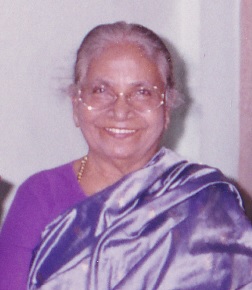 W
WRajammal Packiyanathan Devadas was an Indian nutritionist, educationist and a former chancellor of Avinashilingam Institute for Home Science and Higher Education for Women, popularly known as Avinashilingam Deemed University. She was a member of the State Planning Commission of Tamil Nadu, Tamil Nadu Commission for Women and the elected vice president of the World Food Conference. The Government of India awarded her the fourth highest civilian honour of the Padma Shri in 1992.
 W
WTirath Das Dogra is an Indian forensic pathologist and former Pro-Chancellor and vice-chancellor of SGT University, Budhera Gurgaon Haryana 2013–2017. He is a former director of the All India Institute of Medical Sciences (AIIMS) New Delhi and an authority on forensic medicine. Dogra been member of the Medical Council of India from December 2013 till its dissolution in September 2018. Dogra have been President of National Medicos Organisation Delhi State from 2012 to 2017. Dogra was member of TEQ-Equivalence Committee and Administration and Grievance committee of Medical Council of India. He is member of Advisory committee on MOOC's program of University Grants Commission of India New Delhi. Presently he is emeritus professor of forensic medicine and forensic sciences, professor of Andragogy and educational philosophy and Advidsor, Internal Quality Assurance Cell (IQAC) at SGT University Gurgaon.
 W
WNirmal Kumar Dutta (1913–1982) was an Indian pharmacologist, medical academic and the director of Haffkine Institute, Mumbai. He was known for his contributions to the studies on cholera and was an elected fellow of the National Academy of Medical Sciences, National Academy of Sciences, India and the Indian National Science Academy. The Council of Scientific and Industrial Research, the apex agency of the Government of India for scientific research, awarded him the Shanti Swarup Bhatnagar Prize for Science and Technology, one of the highest Indian science awards for his contributions to Medical Sciences in 1965.
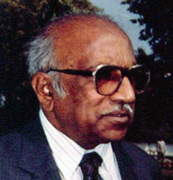 W
WNagarur Gopinath was an Indian surgeon and one of the pioneers of cardiothoracic surgery in India. He is credited with the first successful performance of open heart surgery in India which he performed in 1962. He served as the honorary surgeon to two Presidents of India and was a recipient of the fourth highest Indian civilian award of Padma Shri in 1974 and Dr. B. C. Roy Award, the highest Indian medical award in 1978 from the Government of India.
 W
WProf (Dr) Subhash Gupta is the Chief liver transplant/hepato-pancreato-biliary surgeon and the Chairman of the Max Center of Liver and Biliary Sciences at Max Hospital, Saket.
 W
WBelle Monappa Hegde often abbreviated as B. M. Hegde is a cardiologist, professional educator and author. He is the former Vice Chancellor of Manipal University, Co-Chairman of the TAG-VHS Diabetes Research Centre, Chennai and the chairman of Bharatiya Vidya Bhavan, Mangalore. He has authored several books on medical practice and ethics. He is also the Editor in Chief of the medical journal, Journal of the Science of Healing Outcomes. He was awarded the Dr. B. C. Roy Award in 1999. In 2010, he was honoured with the Padma Bhushan, one of India's highest civilian awards.
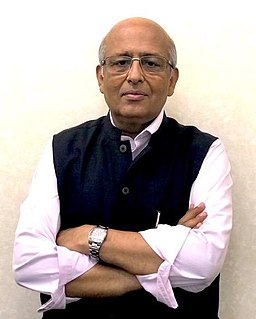 W
WShahid Jameel is an Indian virologist and academic. He is currently the director of the Trivedi School of Biosciences at Ashoka University. He was formerly the chief executive officer of Wellcome Trust DBT India Alliance. Known for his research in hepatitis E virus, Jameel is an elected fellow of all the three major Indian science academies viz. National Academy of Sciences, India, Indian Academy of Sciences, and Indian National Science Academy. The Council of Scientific and Industrial Research, the apex agency of the Government of India for scientific research, awarded him the Shanti Swarup Bhatnagar Prize for Science and Technology, one of the highest Indian science awards for his contributions to Medical Sciences in 2000.
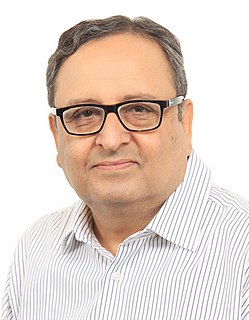 W
WPramod Kumar Julka, is an Indian cancer specialist (oncologist), medical educationist and writer, known for performing the first peripheral blood stem cell transplant following high dose chemotherapy in Metastatic Breast Cancer in India. He was honoured by the Government of India, in 2013, by bestowing on him the Padma Shri, the fourth highest civilian award, for his contributions to the fields of medicine and medical education. The American Society of Clinical Oncology (ASCO) has awarded him by bestowing on him the honorary membership.
 W
WMohan Kameswaran is an Indian otorhinolaryngologist, medical academic and the founder of MERF Institute of Speech and Hearing, a Chennai-based institution providing advanced training in audiology and speech-language pathology. He is one of the pioneers of cochlear implant surgery in India and a visiting professor at Rajah Muthiah Medical College of the Annamalai University and Sri Ramachandra Medical College and Research Institute, Chennai. He has many firsts to his credit such as the performance of the first auditory brain stem implantation surgery in South and South East Asia, the first pediatric brain stem implantation surgery in Asia, the first totally implantable hearing device surgery in Asia Pacific region, and the first to introduce KTP/532 laser-assisted ENT surgery in India. The Government of India awarded him the fourth highest civilian honour of the Padma Shri, in 2006, for his contributions to Indian medicine.
 W
WHakim Syed Khaleefathullah is an Indian physician and the founder of Niamath Science Academy, known for his scholarship and expertise in the alternative medicine system of Unani. He was honoured by the Government of India, in 2014, with the Padma Shri, the fourth highest Indian civilian award, for his contribution to the field of medicine.
 W
WAnil Kohli is an Indian dental surgeon, medical administrator and a former president of the Dental Council of India. He is an elected fellow of the Faculty of Dental Surgery of the Royal College of Surgeons of England and holds the honorary rank of 'Brigadier' in the Army Dental Corps. He is a recipient of B. C. Roy Award, the highest Indian award in the medical category. The Government of India awarded him the fourth highest civilian honor of the Padma Shri in 1992 and followed it up with the third highest civilian honour of the Padma Bhushan, in 2005, for his contributions to medicine, making him the first dentist to receive both the honors.
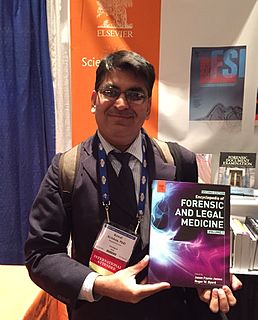 W
WDr. Kewal Krishan, an Indian forensic anthropologist, is Associate Professor of physical anthropology and former Chair of Department of Anthropology at Panjab University, Chandigarh, India. He has contributed to the development of forensic anthropology in India. He is one of the very few forensic anthropology experts of the nation. He earned his PhD in Forensic Anthropology in 2003 from Panjab University, Chandigarh, India. He is an elected fellow of the Royal Anthropological Institute of Great Britain and Ireland (FRAI).
 W
WSunitha Krishnan is an Indian social activist and chief functionary and co-founder of Prajwala, a non-governmental organization that rescues, rehabilitates and reintegrates sex-trafficked victims into society.
 W
WHarsh Kumar is an Indian ophthalmologist, who is reported to have described nine laser surgical procedures for glaucoma and anterior segment of which one procedure is cited by Shields Text Book of Glaucoma, a known reference book on glaucoma management. He is the director of Glaucoma Services at Centre for Sight, New Delhi and also serves at the Indraprastha Apollo Hospitals, Delhi. He was honoured by the Government of India in 2015 with Padma Shri, the fourth highest Indian civilian award.
 W
WJanak Palta McGilligan is an Indian Padma Shri recipient social worker and the founder-director of Jimmy McGilligan Centre For Sustainable Development, an Indore-based non governmental organisation working for sustainable community development. She is also a former founder-director of Barli Development Institute for Rural Women.
 W
WAnoop Misra is an Indian endocrinologist and a former honorary physician to the Prime Minister of India. He is the chairman of Fortis Centre for Diabetes, Obesity and Cholesterol (C-DOC) and heads, National Diabetes Obesity and Cholesterol Foundation (NDOC). A former Fellow of the World Health Organization at the Royal Free Hospital, UK, Misra is a recipient of the Dr. B. C. Roy Award, the highest Indian award in the medical category. The Government of India awarded him the fourth highest civilian honour of the Padma Shri, in 2007, for his contributions to Indian medicine.
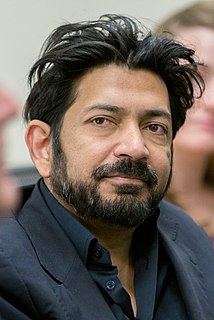 W
WSiddhartha Mukherjee is an Indian-American physician, biologist, oncologist, and author. He is best known for his 2010 book, The Emperor of All Maladies: A Biography of Cancer that won notable literary prizes including the 2011 Pulitzer Prize for General Non-Fiction, and Guardian First Book Award, among others. The book was listed in the "All-Time 100 Nonfiction Books" by Time magazine in 2011. His 2016 book The Gene: An Intimate History made it to #1 on The New York Times Best Seller list, and was among The New York Times 100 best books of 2016, and a finalist for the Wellcome Trust Prize and the Royal Society Prize for Science Books.
 W
WH. R. Nagendra is an Indian mechanical engineer, Yoga therapist, academic, writer and the founder vice chancellor of Swami Vivekananda Yoga Anusandhana Samsthana (S-VYASA), a deemed university located in Bengaluru. He is best known as the personal yoga consultant of Narendra Modi, the prime minister of India and is a recipient of Yoga Shri title from the Ministry of Health and Family Welfare. He has authored 35 books and over 100 research papers on Yoga. The Government of India awarded him the fourth highest civilian honour of the Padma Shri, in 2016, for his contributions to society.
 W
WAnupama Niranjana (1934–1991) was a doctor in India and writer of modern Kannada fiction and non-fiction.
 W
WMohan Chandra Pant (1956–2015) was an Indian radiation oncologist, institution builder and the founder vice chancellor of the H. N. B. Uttarakhand Medical Education University, Dehradun. He served as the Director of Dr. Ram Manohar Lohia Institute of Medical Sciences, Lucknow, and was the Dean and head of the Radiotherapy Department at the King George's Medical University at the time of his death. He received the Dr. B. C. Roy Award, the highest Indian award in the medical category, from the Medical Council of India in 2005. The Government of India awarded him the fourth highest civilian honour of the Padma Shri, in 2008, for his contributions to medicine.
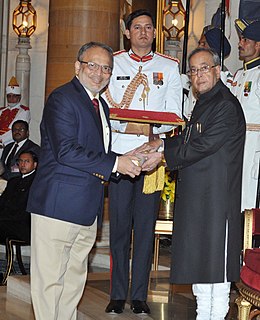 W
WTejas M. Patel is a cardiologist from Ahmedabad, India and chairman and chief interventional cardiologist at Apex Heart Institute, Ahmedabad. Patel, a recipient of the Dr. B. C. Roy Award, the highest Indian medical award, was honoured by the Government of India in 2015 with Padma Shri, the fourth highest Indian civilian award.
 W
WDr. (Prof.) Sheila Singh Paul, MRCP, FRCP, DCH, DTM was the Founder and Director of Kalawati Saran Children's Hospital, New Delhi. She was the first Indian woman to be given such a huge responsibility and she was only 40 years old at that time. She is a pioneer in the field of Pediatrics in India. Kalawati Saran Children's Hospital is one of the largest children hospitals in Asia and was Delhi's first independent children's hospital and not just a department. The Hospital was inaugurated on 17 March 1956 by Lady Edwina Mountbatten, Countess Mountbatten of Burma. It was built from the proceeds of the property donated by Mr Raghubir Saran and Mr Raghunandan Saran of New Delhi and was named after the wife of late Mr Raghubir Saran. It has a separate department of Physical Medicine and Rehabilitation for which the initial electrical and electronic equipment was donated by the Government of the Soviet Union (USSR).
 W
WRaghu Ram Pillarisetti is an Indian oncoplastic breast surgeon, the youngest recipient of the Overseas Gold Medal of the Royal College of Surgeons of Edinburgh and the founder of KIMS-USHALAKSHMI Centre for Breast Diseases at KIMS Hospitals, the first dedicated and comprehensive facility for breast healthcare in the Indian subcontinent. He is also the founder of Ushalakshmi Breast Cancer Foundation, a not for profit organisation working in tandem with government and non government bodies for spreading awareness about breast cancer and Pink Connexion, the first newsletter from India, a quarterly, about breast healthcare. The Government of India honoured him in 2015 with the award of Padma Shri, the fourth highest Indian civilian award.
 W
WRaghavendra Swami of Malladihalli (1890–1996), popularly known as ತಿರುಕ Tiruka ("beggar"), was the founder of Anatha Sevashrama Trust, Malladihalli. He taught yoga to more than 4.5 million people all over the world from his base as Malladihalli near Holalkere in Chitradurga district, a village in Karnataka, India.
 W
WHakim Syed Zillur Rahman is an Indian scholar of Unani medicine. He founded Ibn Sina Academy of Medieval Medicine and Sciences in 2000. He had earlier served as Professor and chairman, Department of Ilmul Advia at the Ajmal Khan Tibbiya College, Aligarh Muslim University (AMU), Aligarh, for over 40 years before retiring as Dean Faculty of Unani Medicine. Presently, he is serving AMU as "Honorary Treasurer". In 2006, the Government of India awarded him the Padma Shri for his contribution to Unani Medicine.
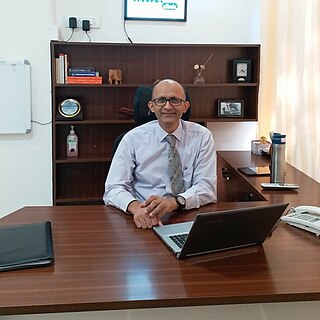 W
WSandeep Nayak is an Indian surgical oncologist based in Bangalore, India, known as the pioneer of robotic thyroidectomy and Minimally Invasive Neck Dissection in India. He is the Director and the Head of Department of surgical oncology at Fortis Hospital, Bangalore. Nayak was recipient of the Times Health Excellence Award for 2018 by The Times of India. Nayak is the member of Royal College of Surgeons of Edinburgh and American Society of Clinical Oncology. He has previously held the position of the assistant professor at Kidwai Memorial Institute of Oncology from 2012 to 2017. Nayak has been constantly ranked among the top oncologists in India
 W
WVirender Singh Sangwan is an Indian ophthalmologist and the Dr. Paul Dubord Chair professor and director of the L. V. Prasad Eye Institute, Hyderabad. Known for his research on limbal stem cells, Sangwan is the founder secretary and an adviser of the Uveitis Society of India. The Council of Scientific and Industrial Research, the apex agency of the Government of India for scientific research, awarded him the Shanti Swarup Bhatnagar Prize for Science and Technology, one of the highest Indian science awards for his contributions to Medical Sciences in 2006.
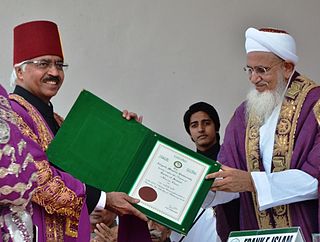 W
WAshok Seth is an Indian interventional cardiologist, credited with the performance of over 50,000 angiograms and 20,000 angioplasties, which has been included in the Limca Book of Records, a reference book for achievements and records from an Indian perspective. He is a Fellow of the Royal Colleges of Physicians of London, Edinburgh and Ireland and serves as the chief cardiologist, holding the chairs of the department of cardiovascular sciences and cardiology council at the Fortis Healthcare. Seth, a recipient of the Order of Isabella the Catholic, was honored by the Government of India with the fourth highest Indian civilian award of Padma Shri, in 2003, followed by Padma Bhushan, the third highest Indian civilian award, in 2015.
 W
WYog Raj Sharma is an Indian ophthalmologist and ex-Chief of Dr. Rajendra Prasad Centre for Ophthalmic Sciences of the All India Institute of Medical Sciences (AIIMS), New Delhi, the apex body of the National Programme for the Control of Blindness, a Government of India initiative to reduce the prevalence of blindness in India. He is the Chairman of the Task Force on Prevention and Control of Diabetic Retinopathy Group and the Co-Chairman of the National Task Force on Prevention of Blindness from Retinopathy of Prematurity under the Ministry of Health and Family Welfare of the Government of India. An advisor to the Ministry of Health and Family Welfare, India, Sharma was honoured by the Government of India in 2015 with Padma Shri, the fourth highest Indian civilian award.
 W
WDr. Jitendra Kumar Singh is an Indian oncologist, the ex director of Mahavir Cancer Institute & Research Centre and the president of Cancer Care India, the apex body for cancer support organizations in India. He was honored by the Government of India, in 2012, with the fourth highest Indian civilian award of Padma Shri.
 W
WHargovind Laxmishanker "H. L." Trivedi was an Indian nephrologist, immunologist, transplant surgeon and stem cell researcher.
 W
WKatil Narasimha Udupa was an Indian surgeon, medical administrator, a pioneer of integrative medicine Born in Udupi in the South Indian state of Karnataka, he passed his bachelor's degree in Ayurvedic Medicine (AMS) from Banares Hindu University, secured his master's degree (MS) from the University of Michigan in 1948 and passed FRCS examination from Canada.
 W
WTehemton Erach Udwadia is an Indian surgeon and gastroenterologist, considered by many as the father of laparoscopic surgery in India. He is a general surgeon at two Mumbai hospitals, Breach Candy Hospital and Hinduja Hospital and is the founder president of the Indian Association of Gastrointestinal Endo-Surgeons. The Government of India awarded him the fourth highest civilian honour of the Padma Shri, in 2006 and the third highest civilian honour of the Padma Bhushan in 2017 for his contributions to Indian medicine.
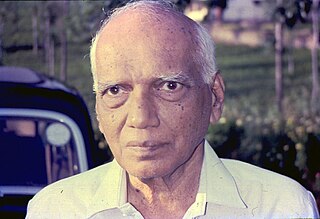 W
WNatteri Veeraraghavan (1913-2004) was an Indian physician, microbiologist and medical researcher, known for his contributions to the understanding of diseases like rabies, tuberculosis and leprosy. He was a former director of the Pasteur Institute of India, Coonoor and the chairman of the World Health Organization International Reference Center on Rabies. He was honoured by the Government of India in 1967, with the award of Padma Shri, the fourth highest Indian civilian award for his contributions to the society.
 W
WMohsin Wali is an Indian cardiologist and a former honorary physician to R. Venkataraman and Shankar Dayal Sharma and the serving physician to Pranab Mukherjee. His first assignment as a physician to the President of India was with R. Venkataraman, at the age of 33, making him the youngest physician to serve an Indian President. He is the only physician to have served three Presidents of India. The Government of India awarded him the fourth highest civilian honour of the Padma Shri, in 2007, for his contributions to Indian medicine.